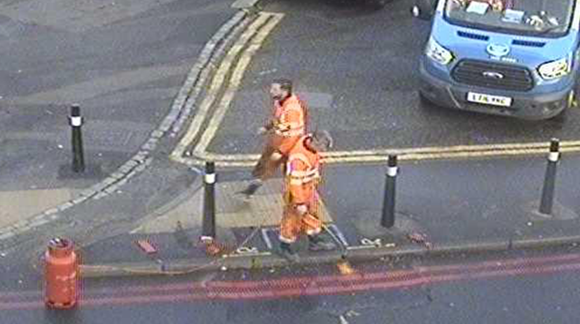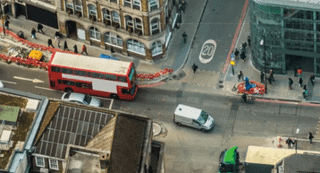Transport for London (TfL) has successfully prosecuted Thames Water for four safety streetworks related offences.
The works took place on the Purley Way, Eltham Road and West Hill in October and November 2019, with prosecution delayed due to the coronavirus pandemic.
In October 2019 on West Hill, Thames Water failed to adequately sign, light and guard its work site, or provide people walking and cycling with adequate alternative routes to pass the site.
Thames Water then repeatedly failed to adequately rectify the problem when notified by TfL, resulting in the site’s safety deteriorating further, causing additional danger to members of the public.
Similar problems were found at Eltham Road, also in October 2019, with further danger caused by a vehicle being parked across the footway. This forced people to walk further into the road, said TfL, requiring traffic to move into adjacent lanes of oncoming traffic, which could have caused a head-on collision.
Glynn Barton, TfL's director of network management, said: “We work hard to keep London moving and, as part of that, we need the cooperation of utility companies.
“Ensuring roadworks are safe is vital to keeping people walking, cycling and using the road network safe, which is why we prosecuted Thames Water for breaching these important safety rules.
“We are working with Thames Water and other utility companies to ensure that roadworks are carried out properly, safely and with minimal disruption to road users and the company makes significant improvements.”
TfL must be notified of works being carried out on its road network, which includes London's busiest 'red route' roads, so that disruption can be minimised and safety maintained.
Thames Water failed to provide details of the exact location, dimensions and other engineering information used in the work on the Purley Way, breaching Street Works Regulations and causing a significant impact on the road network.
Failure to inform TfL when work is completed causes issues as TfL is unable to accurately coordinate the road network, which can lead to increased levels of disruption. If full details are not registered, this can cause problems with inspecting the affected area for safety and engineering defects, it said.























Login to comment
Comments
No comments have been made yet.